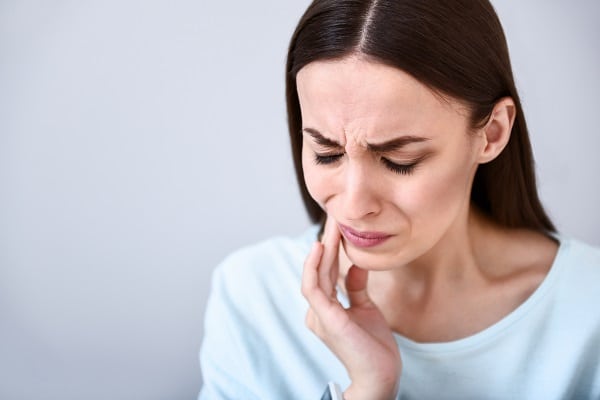
If this joint becomes misaligned or disjointed because of a blunt force trauma, stress, or overuse it can create a host of problems commonly referred to as TMJ disorder. Because the body is highly interconnected, a TMJ disorder can cause chronic pain and symptoms that negatively affect your life. This disorder is often hard to diagnose because the symptoms mimic those of other ailments.
At Adler Advanced Dentistry in Boulder, Dr. Michael Adler uses the principals of neuromuscular dentistry to diagnose and treat TMJ disorders. Common symptoms of a TMJ disorder include:
- Headaches
- Facial pain and/or soreness
- Jaw pain and/or soreness
- Pain and/or ringing in your ears
- Neck and/or upper shoulder pain
- Difficulty chewing or pain while chewing
- Loose teeth or teeth that feel loose
- Jaw locking when you open and close your mouth
- Numbness in the fingers and/or hands
If you have one or more of these symptoms and have not been able to determine their origin, you may have a TMJ disorder. Those who grind their teeth, have arthritis, or certain connective tissue diseases have an increased risk for TMJ disorder and should seek the help of a TMJ specialist if you experience any of these symptoms.
If you believe you may have a TMJ disorder and want to learn about your options, contact our TMJ dentist at to schedule a free consultation. We welcome patients who live in Boulder, Denver, Ft. Collins, and nearby areas in Colorado.
